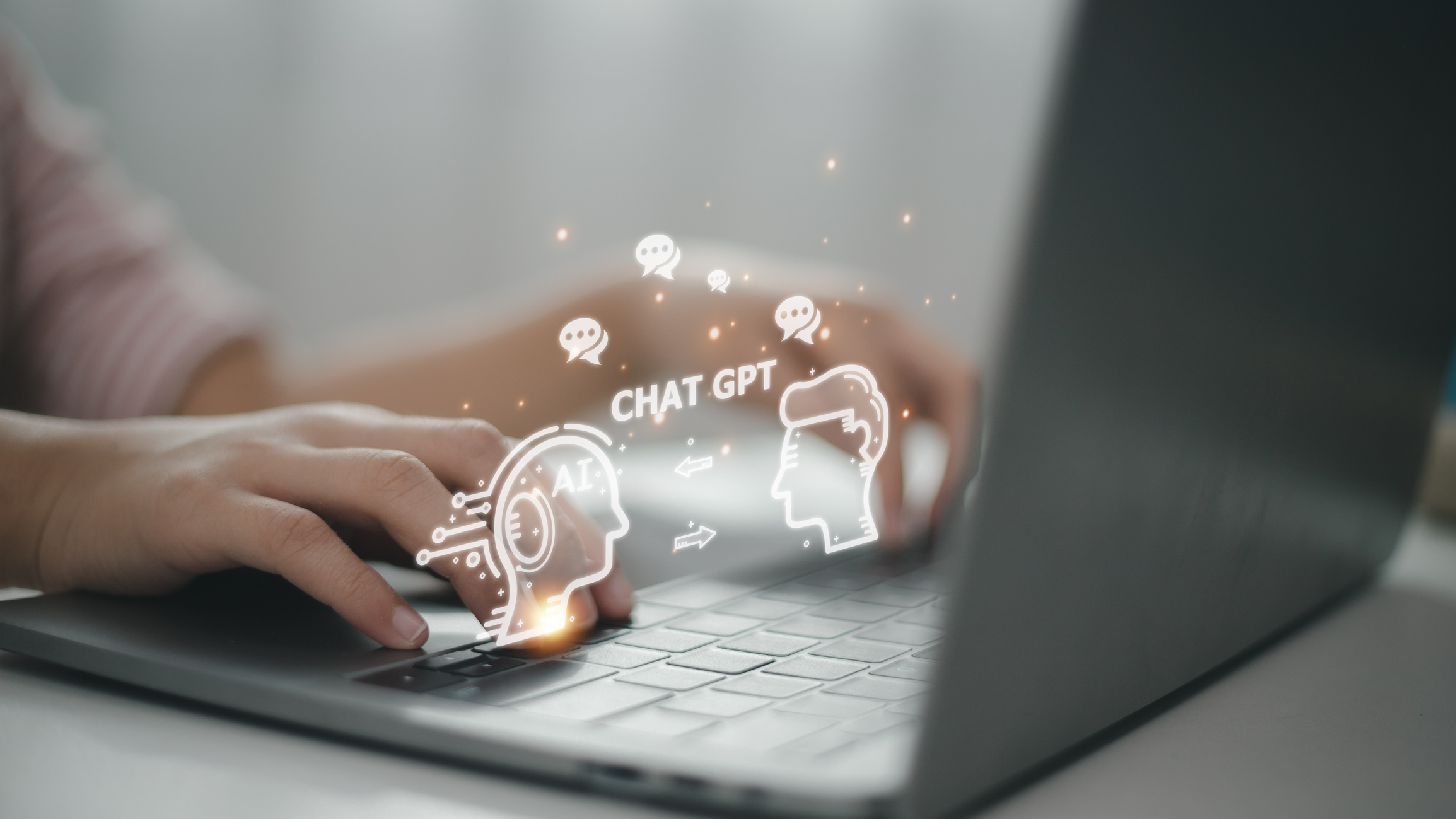Although I have never understood the mania over the Star Wars franchise, I like a good science fiction yarn. To that end, I really enjoyed The Matrix, at least the first movie of that particular series. If you have seen it, you know it is a cautionary tale about what happens when sentient computers take over the world. Spoiler alert, it isn’t good for humans.
Thanks to the recent explosion on the world scene of OpenAI’s ChatGPT, artificial intelligence (AI) seems to be on everyone’s lips. In case you aren’t familiar with ChatGPT, it is something known as a chatbot. But what exactly is a chatbot? Am I right?
According to oracle.com, a chatbot is “a computer program that simulates and processes human conversation (either written or spoken), allowing humans to interact with digital devices as if they were communicating with a real person. Chatbots can be as simple as rudimentary programs that answer a simple query with a single-line response, or as sophisticated as digital assistants that learn and evolve to deliver increasing levels of personalization as they gather and process information.”
Before I go much further on the topic, I will freely admit my knowledge of chatbots and AI is a great as my knowledge of internal combustion engines. Let’s just say I am not an expert, but I know they exist and I can get great benefit from both.
Frankly, very few people are experts on AI. The rest of us are only guessing what its influence will be on society, the economy and our individual situations.
Since change is a scary thing, it seems a lot of the speculation about AI’s eventual impact borders on hysteria. The machines are coming for us!
This past Tuesday, a group called the “Center for AI Safety” released a statement which hundreds of notable AI researchers signed. Among those included: the creators of ChatGPT itself. It simply stated:
“Mitigating the risk of extinction from AI should be a global priority alongside other societal-scale risks such as pandemics and nuclear war.”
Fair enough.
- My first thought when reading this was ‘you guys are the folks creating it, so stop it.’
- The second one was ‘great, something else to worry about.’
Over the last several years, it seems we have had to worry about a lot of things. Viruses, Vladimir Putin, Xi Jinping, the Russians and Chinese in general, inflation, the Federal Reserve, the debt ceiling, Washington, society upheaval, exploding crime and a laundry list of other things. Whew.
Now we have to worry about our computers killing us? The extinction of our species? Weren’t we worried about overpopulation not so long ago? But, hey, look on the bright side. If humans go extinct, we won’t be facilitating climate change any longer. The oceans will teem with fish, and grey wolves will prowl our empty streets.
It’s going to be great.
In all seriousness, a lot of people are extremely concerned about AI’s impact on the labor markets. If businesses can use advanced technology to help make decisions, why would they need to hire people?
After all, I am pretty sure ChatGPT has never asked for PTO, a 401K with a match, health insurance, flexible hours and a raise. I am also quite certain it has never had a sick child.
I am here to tell you, regardless of the recent furor over AI, this was already happening. In fact, it has been continuously happening since the dawn of the Industrial Revolution. This being advancements in technology making human workers redundant. To that end, Cyrus McCormick and Obed Hussey might have put more people out of work than any other persons in history.
Currently, businesses routinely upgrade their technologies to make existing workers more productive.
Obviously, that should increase overall business capacity and the need to hire as many workers. A great example is word processing software.
When I entered the business world in the early 1990s, my employer actually had two typists on our end of the floor. It would routinely take hours, sometimes even more than a day, to get out an internal memo. Being the new kid on the block, my correspondence found itself to the bottom of their inboxes pretty quickly. As a result, I learned how to use the AppleWorks on my machine, and sent out my own memos. Other younger staff soon followed my lead.
By the time I left Mercantile roughly 5 years later, we no longer had dedicated typists.
Shoot, the following jobs have essentially disappeared from our economy due to advancements in technology, communications, distribution and changes in consumer behavior over the last century
- Telephone operators
- Soda jerks
- Elevator operators
- Film developers
- Milkmen
- Diaper delivery services
- Typesetters
- Television/radio/VCR repairmen
- Video store employees
- Log drivers
- Film projectionists
- Signalmen
- Haberdashers
- Telegraphists
- Cotton pickers, yes, cotton pickers
There are any number of others. Especially when you consider how advancements have drastically cut down the amount of labor needed to produce things like steel, automobiles, textiles, foodstuffs and extract stuff from the ground. Make no bones about it, literally tens of millions of Americans have lost their jobs due to technology.
Conversely, technology has created even more jobs. This has always been the case, and likely will always be the case.
To be sure, AI will make any number of workers redundant. In the not-so-distant future, I might actually employ some to help with this newsletter, our podcast, our investment strategies and other things we produce internally. To be sure, this will cut down on our need to hire more full-time employees. However, it also doesn’t mean I am going to get rid of those we have.
It will simply mean we will have to think and act differently, and that is fine by me. I am more than okay with worker smarter and not necessarily harder. Generating the same or more with less? That sounds like a winner. In fact, I would venture a guess most of our clients and investors would be okay with that as well.
But what of those jobs lost? Well, what of all the people who used to work the land? Operated elevators and telephone switchboards? The folks in the Fotomats which magically developed our pictures? Repaired our televisions? Set the type for newspapers? Delivered milk and “clean” diapers? Rented us videotapes?
Well, they are all doing something else these days. More than likely it is doing a job which really didn’t even exist 50 or 100 years ago.
Since the past often serves as prologue, I am sure whatever threat AI presents to the American worker will also open up previously unknown opportunities.
As for AI driving us to extinction, I have a hard time getting from here to there. After all, humans were able to survive for a pretty long time without AI. However, it does have all the elements of an awesome science fiction movie, kind of like The Matrix.
So, let me pop up some corn, pour a beverage and sit back to watch the show. That is, of course, if my microwave, television and refrigerator don’t kill me first.

John Norris
Chief Economist
Thank you for your continued support. As always, I hope this newsletter finds you and your family well. May your blessings outweigh your sorrows on this any every day. Also, please be sure to tune into our podcast, Trading Perspectives, which is available on every platform.
Please note, nothing in this newsletter should be considered or otherwise construed as an offer to buy or sell investment services or securities of any type. Any individual action you might take from reading this newsletter is at your own risk. My opinion, as those of our Investment Committee, is subject to change without notice. Finally, the opinions expressed herein are not necessarily those of the rest of the associates and/or shareholders of Oakworth Capital Bank or the official position of the company itself.



